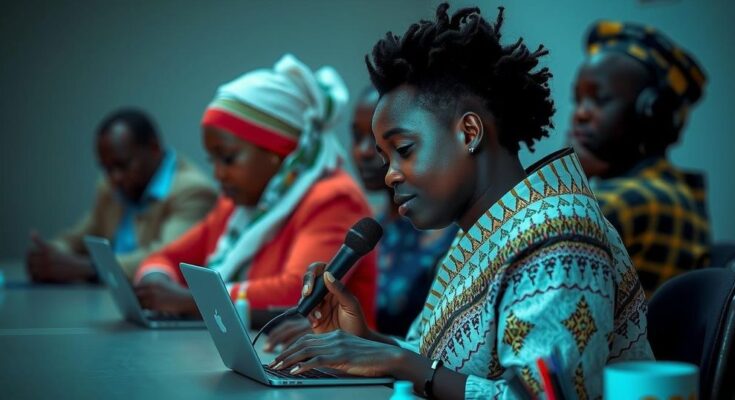Deepfakes featuring Donald Trump have flooded the internet, particularly targeting audiences in Kenya and Nigeria. These videos depict Trump making alarming claims that threaten U.S. financial support and alter immigration policies, raising concerns about misinformation and its impact on governance. As Trump approaches a potential re-election, the implications of such digital manipulation are significant in today’s geopolitical climate.
The surge of deepfake technology has led to the emergence of counterfeit videos involving former U.S. President Donald Trump, particularly targeting audiences in Kenya and Nigeria. Numerous artificial intelligence-generated videos have circulated, depicting Trump making alarming statements. In one widely shared clip, Trump purportedly threatens the Kenyan government, claiming that U.S. financial support will cease unless abductions are addressed. In other instances, Trump is shown altering U.S. immigration policy pertaining to Nigeria, further contributing to the political turmoil in the region. This phenomenon raises serious concerns regarding the potential for misinformation and its implications for social stability and governance in these countries.
In addition to this, the current geopolitical atmosphere is ripe with speculation as Trump seeks re-election, prompting discussions on how his potential policies may influence global dynamics. The digital manipulation of public figures such as Trump underscores the growing challenges faced by governments in combating misinformation and protecting their citizens from digital threats. The relevance of this technology in the political landscape cannot be understated as populations navigate the treacherous waters of manipulated media and political propaganda.
The rise of deepfake technology has posed significant risks to social and political environments worldwide. Especially in regions with existing political tensions, such as Kenya and Nigeria, these AI-generated videos can exacerbate fears and misunderstandings among the populace. As misinformation proliferates, the impact on governmental integrity and public trust becomes particularly problematic. With the U.S. elections fast approaching, the implications of deepfake technology on international relations and local governance are of paramount importance, highlighting the need for vigilance against digital deception.
The dissemination of deepfake videos featuring Donald Trump presents a grave threat to the political landscapes of Kenya and Nigeria. These manipulated clips not only misrepresent the former president’s statements but also create friction between citizens and their governments by inciting mistrust and confusion. As nations grapple with the ramifications of this technology, proactive measures must be considered to mitigate misinformation risks, ensuring safe and informed political discourse.
Original Source: www.firstpost.com




